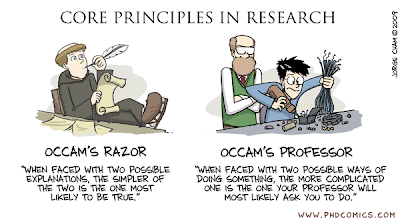Damodaran on the Equity Risk Premium
The Equity Risk Premium is one of the central concepts of finance theory and practice. However, when we teach it in class (usually as part of the CAPM), we tend to do a lot of hand-waving and tell students to use historical ERPs. Aswath Damodaran of New York University has an excellent piece on SSRN titled "Equity Risk Premiums: Determinants, Estimation, and Implications" that's a must-read whether you're a professor, student, or practitioner. Here's the abstract: Equity risk premiums are a central component of every risk and return model in finance and are a key input into estimating costs of equity and capital in both corporate finance and valuation. Given their importance, it is surprising how haphazard the estimation of equity risk premiums remains in practice. In the standard approach to estimating equity risk premiums, historical returns are used, with the difference in annual returns on stocks versus bonds over a long time period comprising the expected...


